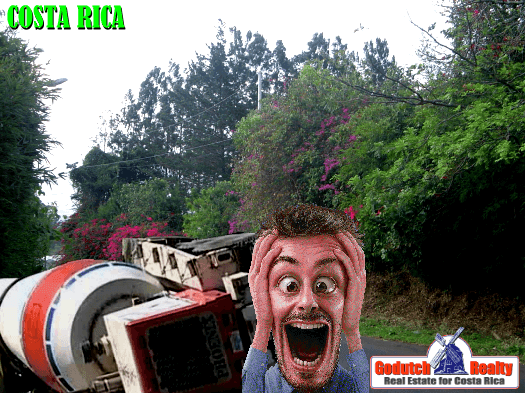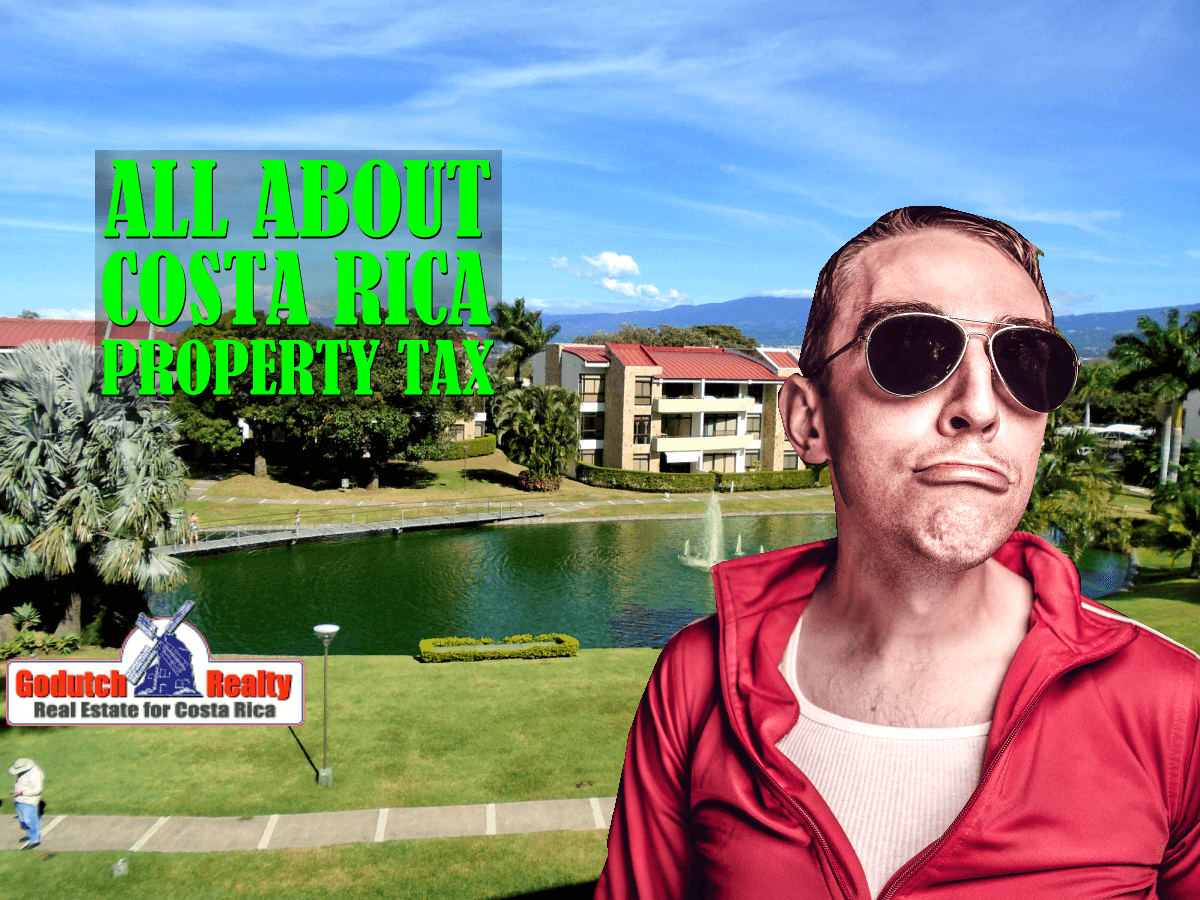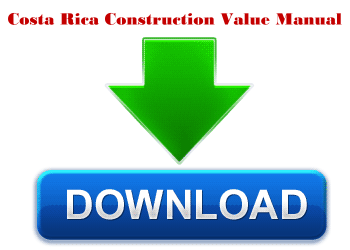Estimated Reading Time: 7 Minutes
The annual Costa Rica property tax runs from the 1st of January until the 31st of December. You can pay the property tax quarterly. The percentage of the yearly property tax is 0,25%, as regulated by Law 7509. The correct way of calculating the Costa Rica property tax or impuesto sobre Los Bienes Inmuebles is to use the registered value of your property in the Municipality where the property is located and multiply this value by 0.25%.
In most municipalities, you can request the annual amount in January and pay for the whole year. Some will even give you a small discount for paying the entire year in advance (like 2%).
Not all municipalities have the same rules, regulations, and services. That is because they are independent of the central government. Therefore, there are additional charges, depending on the city where the property is; see more about this below.
In Costa Rica, you will not get a notice from the government that your property tax is due like you do in many other countries. The law obliges you to know when to pay.

How much to pay
Call your Municipality or go in person to find out how much you must pay. Ask for el departamento de Bienes Inmuebles. They will need to know the property owner’s name (personal or corporate) or the property number or folio real. Unfortunately, few municipalities offer property tax information on their websites.
Where to pay
The Costa Rica property tax can be paid at the cashier in the municipal building or deposited in their Banco de Costa Rica account. If you have a bank account in the Banco de Costa Rica or any other Costa Rican bank, you can pay by SINPE online.
If you do so, I recommend requesting confirmation by email from the municipal tax department that they have received your deposit and credited it to your account. Some municipalities will do this in a heartbeat; others won’t. This confirmation can take up to several months, depending on the Municipality. Therefore, it is essential to keep the deposit slip and insist on their confirmation of receipt. Otherwise, your money might end up in nowhere land.
If you don’t have a bank account in a Costa Rican bank, you might have a problem. However, some municipalities can receive your payment by international wire or credit card. If not, talk to your lawyer; some lawyers offer that service. A fantastic option is to use KeepUp.

Declare the value of your property
Please also pay attention to the obligation that every property owner has to declare the value of their property every 5 years at the Municipality by filling out the “Declaración de Bienes Inmuebles.” You can download the declaration from the municipal website. Look for your Municipality’s website on Google. Some municipalities won’t allow you to pay the Costa Rica property tax until you update the value of your property.
If your property is in a condominium, you have a good reason to ask your condo administration to appraise the units for everyone. This way, you’re all reporting the same property value if the size of each condo is equal.
If the property owner does not declare the property value every five years, the Municipality can re-appraise the property for you. They can fine you for non-presentation of the declaration. Usually, they just appraise it for you, but without having the details of your property.
The declaration expires every 5 years. After that, the owner can only modify the current value if:
1. The deed transfers the title of the property at a higher value
2. If there is a mortgage or a so-called cédula hipotecaria (title protection). In the case of various mortgages, you have to add the total of the mortgages.
3. Rectification of the size of the property or unification of several properties.
4. If the Municipality decides to re-appraise the property for some reason
5. Segregation of the property
6. A remodel of the property, as long as it is more than 20% of the total value of the property
As far as I know, you cannot declare the property at a lower value than it was registered. Even if you have bought it at a lower price than it was registered before. I have only been able to lower the value of a property because it was in terrible condition by asking the municipal engineer to visit the property for an on-site appraisal.
How to appraise the value of your property
The Municipality uses the land value indicators by the Ministerio de Hacienda. You can find the land values online on the municipal website or Google. For example, you can search for mapa de valores Escazu.
Below, you’ll find what the map looks like; click to download. You should be able to find your property on those maps. If you don’t, find a copy of the property’s survey map – “plan catastrado” that’ll make it easier.

In my case, I looked up my property on the Escazu map, as shown above. I found my property on this map at 102-03-U07 (Laureles). The map shows that the value is ¢160,000/m2. My property measures 746m2 x ¢160,000 = ¢119,360,000. This does not include the construction of my house.
Construction value differs depending on the quality of the materials used. Also, you can safely use a construction value between $700 – $1,500/m2 for the construction and deduct 2% per year for depreciation. You can also use the construction manual for the luxury home tax. You can check Manual-de-Valores-base-unitarios-por-tipologia-constructiva-2017 – download it here. Unfortunately, it is in Spanish.
Engineering Department
Many municipalities won’t even allow you to calculate the Costa Rica property tax yourself. I suggest you first calculate it yourself. Then, call to make an appointment and bring a study of the National Register of your property with you. Ask the resident engineer to assist in filling out the property declaration. This way, you’ll save yourself a lot of heartburn.
Municipal services
Apart from your property tax, the Municipality charges municipal services.
It would help if you were careful when you request to pay for your Costa Rica Property Tax or “impuesto sobre los bienes inmuebles.” They might not include the municipal services when they give you the pending amount. You might not find out until years later, so you must pay all the fines.
Municipal services typically include public street lights, cleaning of all public roads, garbage collection, maintenance of parks and green áreas of your community, and municipal police, when they have it.
Save your receipts
Many municipalities in Costa Rica are messy even though they are computerized. Therefore, I recommend you keep all your receipts as proof. Or, even better, request a certification from the municipality once a year that your property taxes AND municipal services are up to date.
Our company no longer offers these services due to the money laundering law restrictions we have as a real estate office. Instead, you can try to find a property manager who takes care of all your obligations for you, ask your lawyer, or use KeepUp.
Other Taxes
If you own property, there is other Costa Tica property tax that you might have to pay:
- Corporation tax – Impuesto a las personas jurídicas
- Luxury home tax – Impuesto Solidario para el Fortalecimiento de Programas de Vivienda
I hope this article has answered all your questions about the Costa Rica property tax.
Don’t hesitate to contact us to request a Zoom meeting when you are in the market to purchase or sell Costa Rica property. We appreciate your business.
Photo courtesy of Gratisography and Technology photo created by drobotdean – www.freepik.com
























